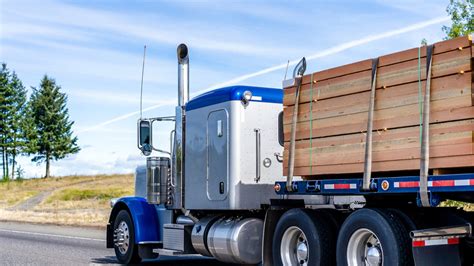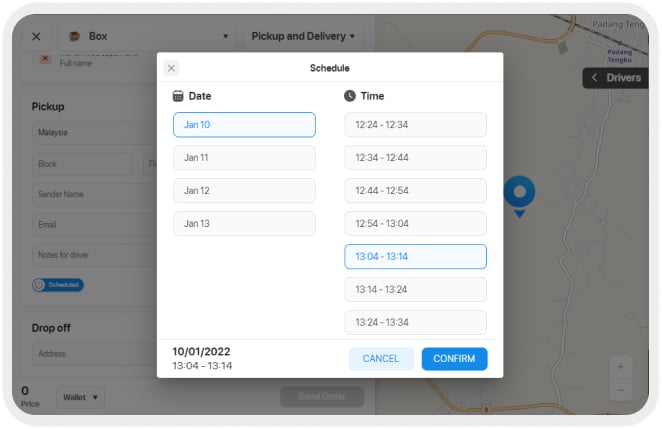Construction Material Delivery

Construction Material Delivery: Revolutionizing the Industry

In the dynamic world of construction, the efficient and timely delivery of materials is a critical aspect that can make or break projects. Construction Material Delivery has emerged as a pivotal process, ensuring that building sites are well-stocked with the necessary resources. This comprehensive guide will delve into the intricacies of this crucial aspect of construction, exploring its impact, innovations, and future prospects.
The Significance of Construction Material Delivery

Construction projects, whether residential, commercial, or industrial, rely heavily on the seamless supply of materials. From foundational elements like concrete and steel to finishing touches such as paint and fixtures, each phase of construction demands a unique set of resources. Effective material delivery ensures that construction sites are equipped with the right materials at the right time, minimizing delays and maximizing productivity.
Efficient Project Management
Construction Material Delivery plays a vital role in project management. It involves meticulous planning, coordination, and execution to ensure that materials are delivered according to the project schedule. By streamlining this process, construction companies can better manage their resources, control costs, and meet project deadlines.
For instance, consider a large-scale infrastructure project with a tight timeline. Efficient material delivery can mean the difference between meeting the deadline and incurring costly delays. A well-organized delivery system ensures that materials are readily available, allowing construction teams to work seamlessly and complete the project on time.
Enhancing Safety and Compliance
Safety is paramount in the construction industry, and material delivery contributes significantly to this aspect. Properly managed deliveries reduce the risk of accidents by ensuring that materials are handled and stored safely. Additionally, compliance with regulations and standards is easier when materials are delivered and documented accurately.
Let's take the example of hazardous materials used in construction, such as certain types of chemicals or flammable substances. A reliable delivery system ensures that these materials are transported and stored according to safety guidelines, reducing the likelihood of accidents and ensuring a safer work environment.
Innovations in Construction Material Delivery
The construction industry has witnessed significant advancements in material delivery, thanks to technological innovations and improved logistics strategies.
Advanced Logistics and Tracking
Construction companies now leverage advanced logistics systems to optimize material delivery. These systems utilize GPS tracking, real-time data analytics, and route optimization algorithms to ensure efficient transportation of materials. By tracking deliveries in real-time, construction managers can anticipate delays, optimize delivery routes, and ensure timely arrival of materials.
| Logistics Solution | Benefits |
|---|---|
| GPS Tracking | Improved visibility, reduced delivery times |
| Data Analytics | Enhanced decision-making, reduced costs |
| Route Optimization | Efficient fuel usage, reduced environmental impact |

Sustainable and Eco-Friendly Practices
With growing environmental concerns, the construction industry is embracing sustainable practices, including material delivery. Construction companies are adopting eco-friendly delivery methods, such as electric vehicles and low-emission trucks, to reduce their carbon footprint. Additionally, they are exploring alternative materials and recycling initiatives to minimize waste.
For example, some construction firms are partnering with green logistics providers who specialize in sustainable transportation and packaging solutions. These partnerships ensure that materials are delivered using environmentally conscious methods, contributing to a greener construction industry.
Technology Integration
Technology is transforming every aspect of construction, and material delivery is no exception. Construction companies are integrating digital tools and platforms to enhance the delivery process. From digital documentation and inventory management systems to automated ordering and tracking apps, technology is streamlining material delivery and improving overall efficiency.
One notable example is the use of construction management software that integrates material delivery with other project management aspects. This software allows construction teams to track material orders, deliveries, and usage in real-time, ensuring a seamless workflow and reducing administrative burdens.
Performance Analysis and Future Prospects
The construction industry’s reliance on efficient material delivery is only set to increase, given the growing demand for construction projects worldwide. As the industry evolves, several key trends and developments are shaping the future of Construction Material Delivery.
Data-Driven Decisions
Construction companies are increasingly utilizing data analytics to make informed decisions about material delivery. By analyzing historical data, current trends, and market dynamics, they can optimize delivery routes, predict material demands, and improve overall logistics efficiency.
For instance, a construction firm might use data analytics to identify peak construction periods in different regions, allowing them to strategically plan material deliveries and avoid potential bottlenecks.
Last-Mile Delivery Innovations
Last-mile delivery, the final stage of the logistics process, is a critical aspect of material delivery. Construction companies are exploring innovative solutions, such as drone deliveries and autonomous vehicles, to streamline last-mile logistics. These technologies offer the potential for faster, more efficient, and cost-effective deliveries, especially in remote or hard-to-reach construction sites.
Sustainable Materials and Recycling
The construction industry’s focus on sustainability is expected to continue, with a growing emphasis on using sustainable materials and recycling initiatives. Construction Material Delivery will play a pivotal role in ensuring that these materials are sourced, transported, and utilized efficiently. This includes optimizing delivery routes to reduce carbon emissions and implementing recycling programs to minimize waste.
Collaborative Logistics
Construction projects often involve multiple stakeholders, and effective collaboration is essential for efficient material delivery. Construction companies are increasingly partnering with logistics providers and suppliers to streamline the delivery process. Collaborative logistics ensures that materials are delivered seamlessly, with clear communication and coordination among all parties involved.
Automated Inventory Management
Efficient inventory management is crucial for successful material delivery. Construction companies are adopting automated inventory systems that track material usage, orders, and deliveries in real-time. These systems reduce manual errors, optimize material storage, and ensure that construction sites are always stocked with the right materials.
Expert Insights and Industry Trends

Construction Material Delivery is a dynamic field, and industry experts are continuously shaping its future. Here are some insights and trends shared by leading professionals in the field.
As the construction industry evolves, Construction Material Delivery will continue to play a pivotal role in ensuring successful projects. By embracing technological advancements, sustainability initiatives, and collaborative logistics, construction companies can optimize material delivery, reduce costs, and meet the growing demand for construction projects.
FAQ
How does Construction Material Delivery impact project timelines and costs?
+Efficient Construction Material Delivery ensures that construction projects are supplied with the necessary resources on time. This reduces delays, minimizes costs associated with idle labor, and helps construction companies meet project deadlines. On the other hand, inefficient delivery can lead to costly delays and increased expenses.
What are the key benefits of sustainable Construction Material Delivery practices?
+Sustainable Construction Material Delivery practices reduce the environmental impact of construction projects. By using eco-friendly delivery methods and materials, construction companies can minimize their carbon footprint and contribute to a greener industry. Additionally, sustainable practices often lead to cost savings and improved brand reputation.
How can technology improve Construction Material Delivery processes?
+Technology plays a crucial role in optimizing Construction Material Delivery. It enables real-time tracking, data-driven decision-making, and efficient logistics management. From GPS tracking to automated inventory systems, technology enhances visibility, reduces errors, and improves overall delivery efficiency.


